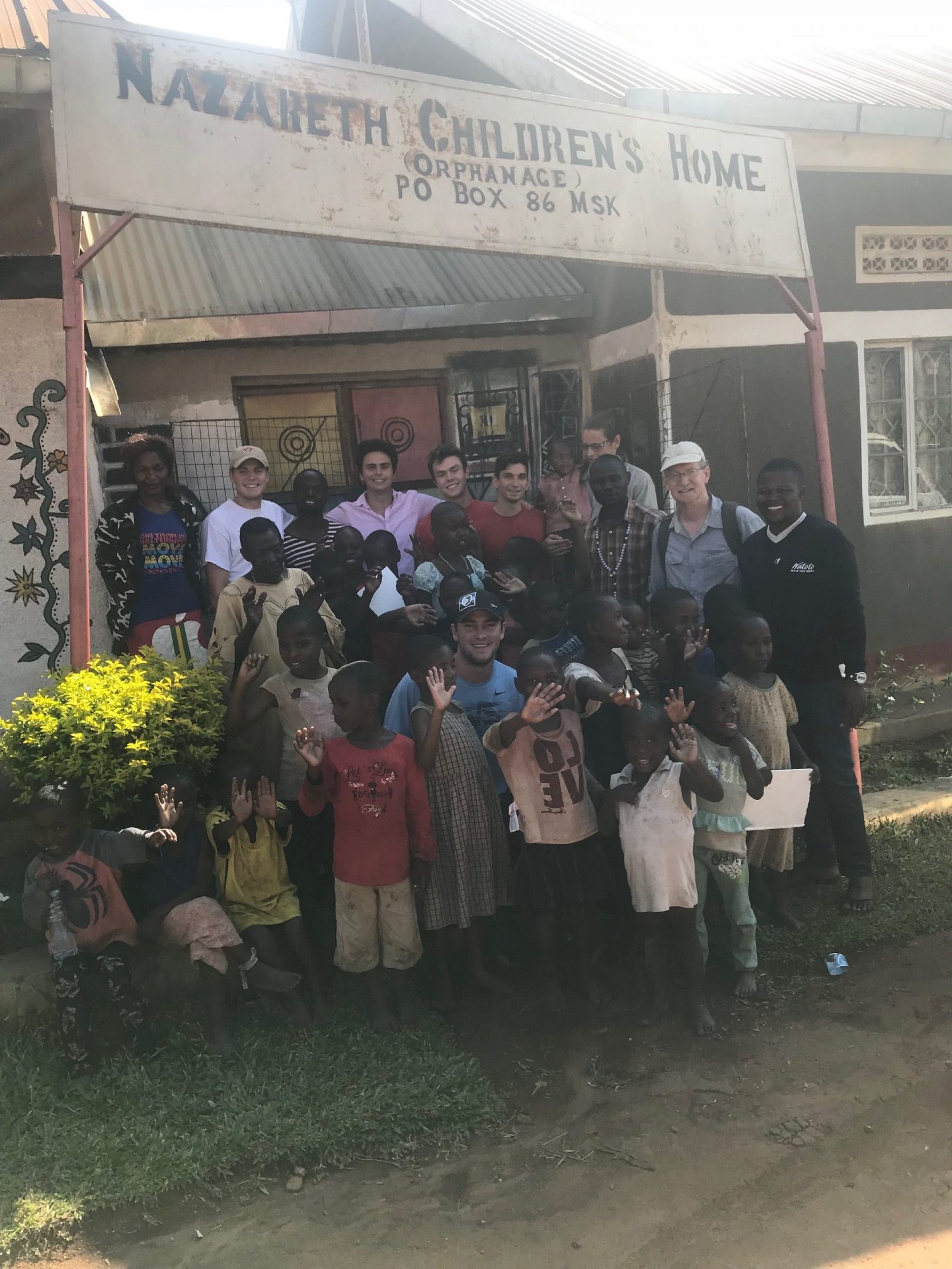Learn how the Engineers without Borders Central Virginia Chapter (EWB-CVA) initiatives will change countless lives
Since 2009 the Professional Chapter of Engineers without Borders has been working to bring electric, water and water treatment projects to rural southern Uganda by combining professional mentors with student chapters and forming teams to build projects at schools and orphanages in the Masaka, Uganda area.
Masaka in in the southern part of Uganda near Lake Victoria. It is the largest city in that area of Uganda. The projects that the CVA-EWB has supported are within 30 Km of the town.

In this part of Uganda the food supply is from garden to table with minimal refrigeration for food storage. This food supply is sufficient when seasonal weather patterns provide the normal wet and dry seasons twice per year. The soil is very fertile as long as water is available. In the rural areas safe water sources are scarce and only a small percentage of the rural areas have access to electrical power. The areas that do have electrical access are subject to frequent outages to balance generation to load and the electricity primarily sourced from hydro generators is very expensive. These outages may occur every other day for 6 to 8 hours.

In 2007 the EWB-CVA partnered with the Virginia Tech Chapter of EWB for the first project in Uganda. We chose the Uganda Rural Fund (URF) as our Non-Governmental Organization to provide boots on the ground support for the projects in this area. The URF is a 501c both in Uganda and in the United States that supports the development of rural villages in Uganda. In 2009 the first trip to Uganda with two mentors and six students began the first installation of a solar storage system for Hope School which is operated by the URF.

This Initial project took two weeks on the ground in Uganda with the EWB team and installed 6kW of Solar Storage at the school. The power was adequate to supply lights, printers, computers, and a copy machine. It significantly reduced the cost of electricity for the school.
Meet the Students and Orphans

Hope Academy was founded in 2008 to provide secondary and vocational education to orphans and disadvantaged youth who had dropped out of school to get them a second chance to receive an education. The Academy current enrollment of both girls and boys is at 154 students from senior one (grade 8) to senior four (grade 11).

Hope Junior School was established in 2013 as a kindergarten and currently, enrollment is up to Primary Five. The school expands by one grade each year until we reach Primary Seven. This initiative is a response to the cry of parents who fear for their small children the danger of crossing busy roads to get to the town schools.

St Joseph’s Secondary School is located in Villa Maria, just about 10 Km west of Masaka. The school is on a plateau and has only rainwater to supply the students. This school has about 400 secondary students in a remote rural area. They are located in the very first area where missionaries were sent to Uganda for the first time.

The Nazareth Orphanage is located in the town of Nyendo, Uganda which is just adjacent to the town of Masaka. There are approximately 44 orphans that are taken care of by the staff at the orphanage. They are from 2 years old until they graduate from secondary school. A number of the staff members are previous orphans that were taken care of by the orphanage but now have returned to help with the other children. The orphanage provides support to place all school age children into appropriate schools through their sponsorship programs.

This is our newest target school, St Michaels. It is in a very rural area near the town of Mbirrizi and has no electricity. With about 250 elementary students it needs solar storage. The Virginia Tech Team did a site assessment last year for a project this August. This is a typical classroom for the students.
History
Our first project started with the planning for the trip to Uganda in 2007. We made our first trip with the Virginia Tech Student Section in 2009 but our history is tied to the EWB history which began decades earlier.
In April 2000, Dr. Bernard Amadei, professor of civil engineering at the University of Colorado Boulder, visited a community in San Pablo, Belize, to assess their water supply. He learned that the 950 Mayan Indians living in the heart of the Belize jungle lacked clean water and sanitation infrastructure, and that most of the community’s children did not attend school because their time was dedicated to collecting water from miles away.
While the community had the natural resources and motivation to build a reliable water supply system, they lacked the technical skills to design a lasting solution. Professor Amadei went home and consulted colleagues on potential solutions, then returned to the community with a prototype and fourteen of his students to put the plan into action. The team installed a clean water system supplied and powered by a waterfall a quarter-mile from the community. This simple and low-cost solution was the first EWB-USA project!
Dr. Amadei continued to harness the power of professional and student engineers to complete similar low-tech, high-impact projects in other developing countries by officially founding Engineers Without Borders USA in 2002. Since then, EWB-USA has grown from a handful of passionate individuals to an organization of more than 14,100 passionate members working on hundreds of engineering projects across the globe.
“Improving the lives of the 5 billion people whose main concern is to stay alive by the end of each day on our planet is no longer an option for engineers; it is an obligation.” -Dr. Bernard Amadei, EWB-USA Founder

Please contact us directly with questions, comments, and more.


